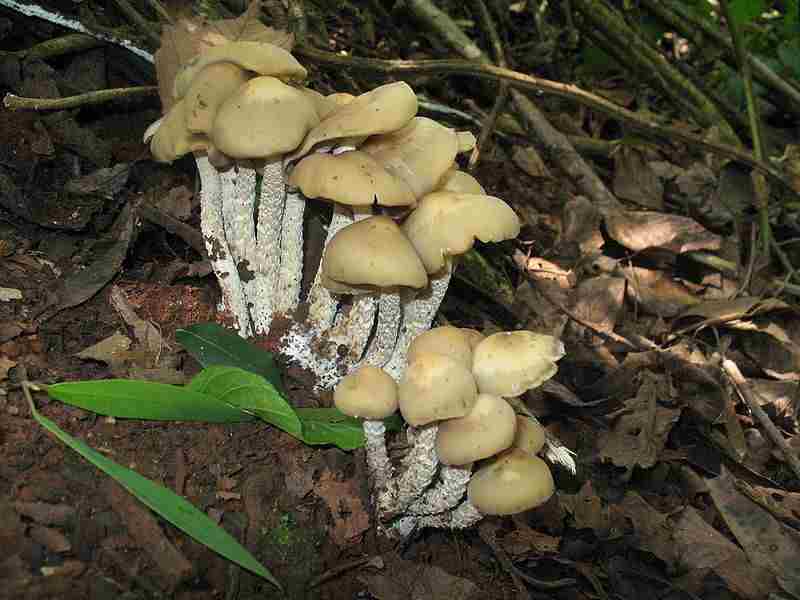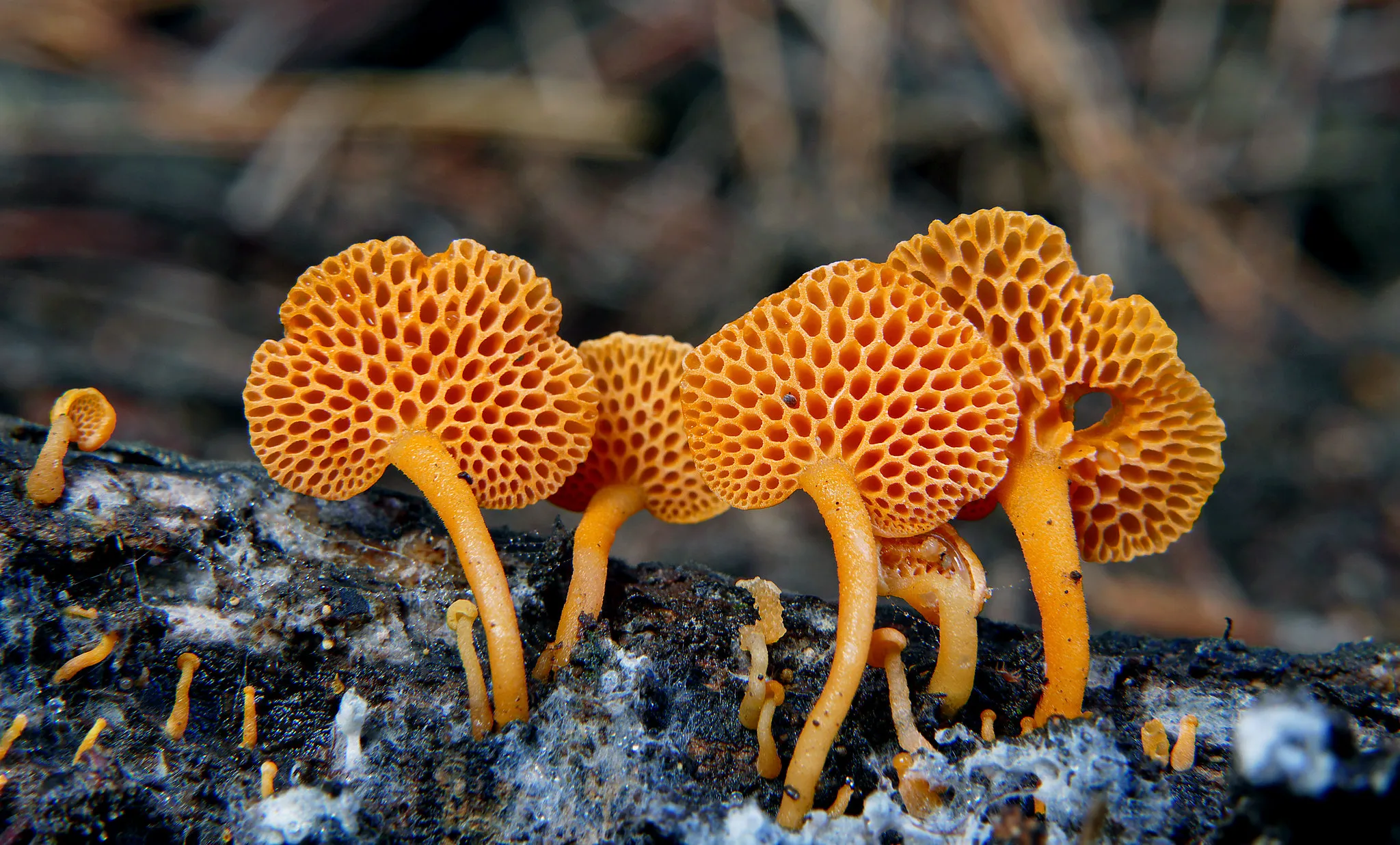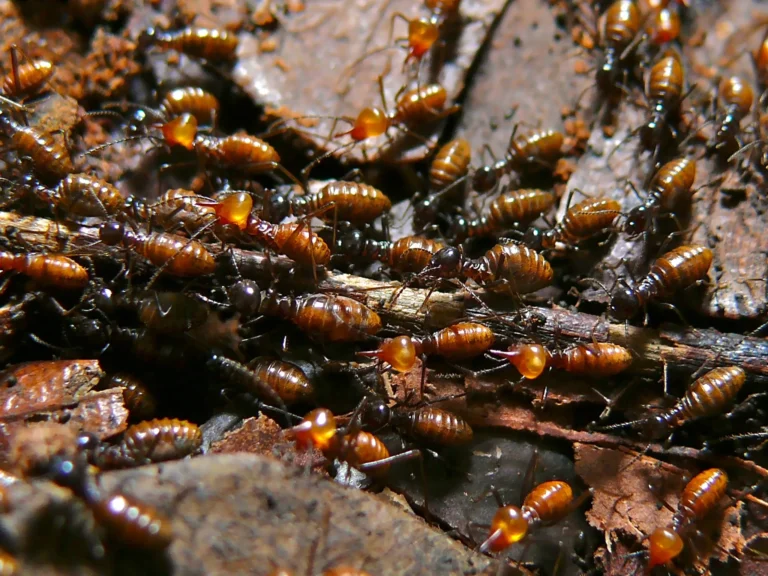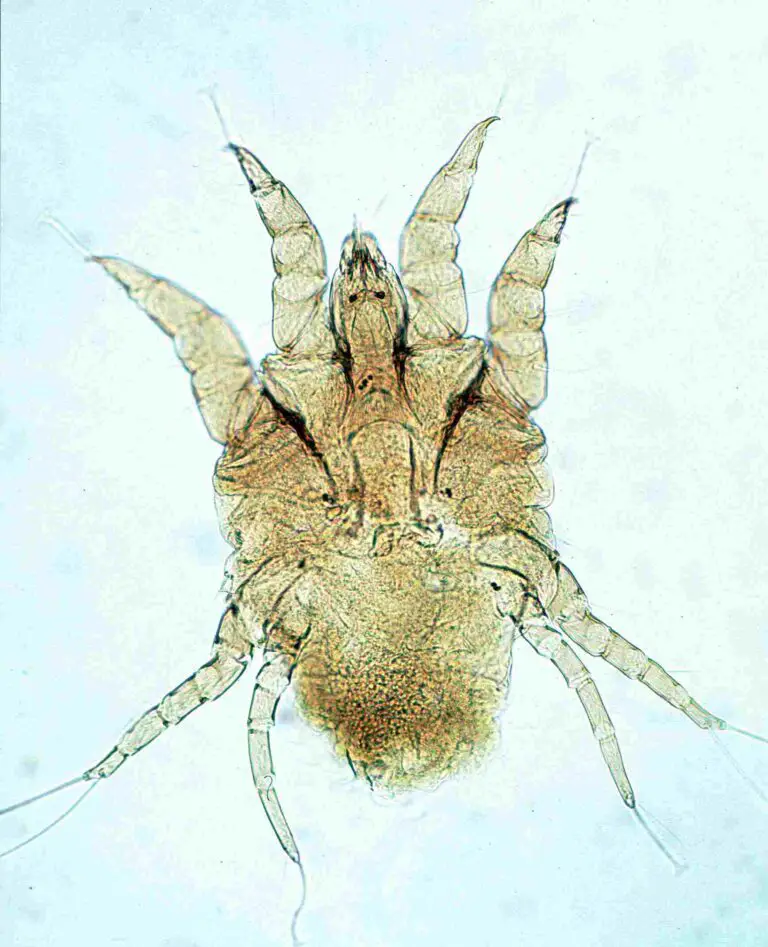What Role Do Decomposers Play in the Nitrogen Cycle, Food Chain, Food Web?
Roles which decomposers play in the nitrogen cycle include; returning nitrogen to the atmosphere from organic substrates, replenishment of soil nitrogen for plants, conversion of organic nitrogen to ammonia, and continuous nitrogen recycling.
1. Decomposers Return Nitrogen to the Atmosphere from Organic Substrates
Decomposers contribute to the nitrogen cycle by returning nitrogen to the atmosphere from organic substrates. This process is known as denitrification and is carried out by certain bacteria and fungi.
* When organic matter, such as dead plants or animals, is broken down by decomposers, nitrogen compounds are released into the soil. These compounds can then be converted into various forms, including nitrate (NO3-) and ammonium (NH4+), which are essential nutrients for plants.
* However, not all of the nitrogen is taken up by plants. Some of it is converted back into nitrogen gas (N2) and released into the atmosphere through denitrification. This is an important step in the nitrogen cycle as it helps to maintain a balance of nitrogen in the environment.
* Denitrification occurs in anaerobic conditions, where there is a lack of oxygen. Certain bacteria, such as Pseudomonas and Bacillus species, are capable of carrying out this process. These bacteria use the nitrogen compounds as a source of energy and convert them into nitrogen gas, which is then released into the atmosphere.
* The return of nitrogen to the atmosphere through denitrification is important for several reasons. Firstly, it helps to prevent an excessive buildup of nitrogen in the soil, which can be harmful to plants and other organisms. Secondly, it helps to maintain a balance of nitrogen in the atmosphere, which is essential for the health of the planet.

2. Soil Nitrogen is Continuously Replenished Through the Activities of Decomposers
Decomposers play a crucial role in the continuous replenishment of soil nitrogen through their activities.
* When organic matter, such as dead plants or animals, is broken down by decomposers, nitrogen compounds are released into the soil. These nitrogen compounds serve as a valuable source of nutrients for plants and other organisms in the ecosystem.
* Decomposers, such as bacteria and fungi, break down complex organic compounds into simpler forms, including nitrogen-containing compounds. These compounds can then be converted into various forms, such as nitrate (NO3-) and ammonium (NH4+), which are readily available for plant uptake.
* The process of decomposition involves the breakdown of organic matter by decomposers, releasing nitrogen compounds into the soil. These nitrogen compounds are then transformed by other microorganisms into forms that can be utilized by plants. For example, certain bacteria convert organic nitrogen into ammonia through a process called ammonification.
* Ammonia is an important source of nitrogen for plants. It can be taken up by plant roots and used for various physiological processes, including protein synthesis and growth. Decomposers, through their activities, facilitate the conversion of organic nitrogen into ammonia, making it accessible to plants.
* The continuous replenishment of soil nitrogen by decomposers is essential for the overall health and productivity of ecosystems. Nitrogen is a vital nutrient for plant growth, and its availability in the soil directly affects plant productivity. By breaking down organic matter and releasing nitrogen compounds into the soil, decomposers ensure a constant supply of nitrogen for plants.
* Also, the activities of decomposers contribute to the general cycling of nutrients in the ecosystem. As decomposers break down organic matter, they release not only nitrogen but also other essential nutrients, such as phosphorus and potassium, into the soil. These nutrients are then available for uptake by plants, completing the nutrient cycle.
3. Decomposers may Convert Organic Nitrogen to Ammonia
Decomposers, such as bacteria and fungi, play a definitive role in the conversion of organic nitrogen to ammonia. This process, known as ammonification, is an important step in the nitrogen cycle and contributes to the availability of nitrogen for plants and other organisms in the ecosystem.
* When decomposers break down organic matter, they release nitrogen-containing compounds into the soil. These compounds can include proteins, nucleic acids, and other organic molecules that contain nitrogen. Decomposers have the ability to break down these complex organic compounds and convert them into simpler forms, including ammonia.
* Ammonia (NH3) is a highly soluble compound that can be readily taken up by plant roots. It serves as a valuable source of nitrogen for plants, which use it for various physiological processes, such as protein synthesis and growth. By converting organic nitrogen to ammonia, decomposers make this essential nutrient more accessible to plants.
* The conversion of organic nitrogen to ammonia by decomposers also has implications for the overall nutrient cycling in the ecosystem. Ammonia can be further transformed into other nitrogen compounds, such as nitrate (NO3-), through a process called nitrification. Nitrate is another form of nitrogen that plants can utilize for their growth and development.
* Additionally, the conversion of organic nitrogen to ammonia by decomposers helps to prevent the accumulation of excess nitrogen in the environment. Organic nitrogen compounds, if not broken down and converted, can build up and contribute to nutrient imbalances and pollution. By converting organic nitrogen to ammonia, decomposers ensure that nitrogen is efficiently recycled and made available for use by plants and other organisms.
* In general, the ability of decomposers to convert organic nitrogen to ammonia is essential for the functioning of ecosystems. It helps to maintain a continuous supply of nitrogen for plant growth, supports the nutrient cycling process, and prevents the buildup of excess nitrogen. Without the activities of decomposers, the availability of nitrogen in the ecosystem would be limited, impacting the productivity and sustainability of the entire food web.
4. Through Biodegradation, Decomposers Facilitate the Uptake of Nitrogen by Plants
Decomposers play a crucial role in facilitating the uptake of nitrogen by plants through the process of biodegradation. This process entails the breakdown of complex organic matter into simpler products that can be readily absorbed by plants.
* When organic matter, such as dead plants or animal remains, is decomposed by bacteria and fungi, it undergoes a series of chemical reactions. These decomposers secrete enzymes that break down the organic matter into smaller molecules, including nitrogen-containing compounds.
* As the organic matter is broken down, the nitrogen compounds are released into the soil. These compounds can include amino acids, proteins, and other nitrogen-rich molecules.
* The presence of decomposers in the soil is essential for the efficient breakdown of organic matter and the release of nitrogen. Without decomposers, organic matter would accumulate and remain locked in complex forms that are inaccessible to plants.
* Once the nitrogen compounds are released into the soil, they can be taken up by plant roots. Plants have specialized structures called root hairs that increase their surface area for nutrient absorption. The nitrogen compounds are transported into the plant’s cells, where they are used for various metabolic processes.
* Nitrogen is an essential nutrient for plants, as it is a key component of proteins, nucleic acids, and chlorophyll. These molecules are involved in important functions such as growth, photosynthesis, and reproduction. By facilitating the breakdown of organic matter and the release of nitrogen, decomposers ensure that plants have an adequate supply of this vital nutrient.
* In addition to providing nitrogen to plants, the process of biodegradation also contributes to the overall health and fertility of the soil. The breakdown of organic matter by decomposers releases other nutrients, such as phosphorus and potassium, which are essential for plant growth. This nutrient recycling process helps to maintain the nutrient balance in the soil and supports the growth of a diverse range of plant species.
5. Decomposers Generally Support the Continuous Recycling of Nitrogen
Decomposers play a vital role in the continuous recycling of nitrogen in ecosystems. Through their activities, they ensure that nitrogen is efficiently reused and made available to other organisms.
* One way decomposers support the recycling of nitrogen is by breaking down organic matter, such as dead plants and animal remains, into simpler compounds. During this process, nitrogen-containing molecules are released into the environment. These nitrogen compounds can include amino acids, proteins, and other organic substances rich in nitrogen.
* Once released, these nitrogen compounds can be taken up by other organisms, such as plants, through their roots. Plants require nitrogen to synthesize proteins, nucleic acids, and chlorophyll, which are essential for their growth and development. By absorbing nitrogen from the environment, plants contribute to the continuous cycling of this vital nutrient.
* Decomposers also play a crucial role in the decomposition of nitrogen-rich waste materials, such as animal excrement and decaying plant matter. These biogenic wastes contain nitrogen in various forms, and decomposers break them down, releasing nitrogen back into the environment. This process ensures that the nitrogen present in these waste materials is not wasted but instead becomes available for reuse by other organisms.
* Additionally, decomposers contribute to the recycling of nitrogen by converting organic nitrogen into ammonia. Ammonia is a form of nitrogen that can be readily used by plants and other organisms. Decomposers, such as bacteria, convert organic nitrogen into ammonia through a process called ammonification. This conversion process further enhances the availability of nitrogen in the ecosystem.
* The continuous recycling of nitrogen by decomposers is essential for maintaining the balance of nutrients in ecosystems. Without decomposers, nitrogen would accumulate in organic matter and become unavailable for other organisms. By breaking down organic matter, decomposers ensure that nitrogen is constantly being released and made accessible to support the growth and development of various organisms.
What is the Role of Decomposers in the Food Chain?
The role of decomposers in the food chain includes; recycling of nutrients, facilitation of photosynthesis in autotrophs, consumption of biogenic wastes and detritus, creation of room for continuous biological activity and growth.
1. Recycling of Nutrients
Decomposers play a crucial role in the food chain through the recycling of nutrients. This process is essential for maintaining the balance and sustainability of ecosystems.
When organisms die or produce waste, decomposers break down their organic matter into simpler compounds. This decomposition releases nutrients such as nitrogen, phosphorus, and carbon back into the environment. These nutrients are then available for uptake by plants and other organisms, starting the nutrient cycle anew.
By recycling nutrients, decomposers ensure that essential elements are not lost from the ecosystem. This recycling process is particularly important for nitrogen, as it is a vital component of proteins and DNA. Without decomposers, nitrogen would remain locked in dead organisms and waste, limiting its availability for other organisms.
Furthermore, the recycling of nutrients by decomposers helps to maintain the overall health and productivity of ecosystems. By breaking down organic matter, decomposers prevent the accumulation of dead material, which can lead to the depletion of oxygen and the release of harmful substances.
2. Facilitation of Photosynthesis in Autotrophs
Decomposers play a crucial role in the food chain by facilitating photosynthesis in autotrophs.
*This process is essential for the production of organic matter and the overall functioning of ecosystems.
*Autotrophs, such as plants and algae, are able to produce their own food through photosynthesis. They use sunlight, carbon dioxide, and nutrients to synthesize glucose, which serves as their energy source. However, autotrophs require essential nutrients, including nitrogen and phosphorus, to carry out photosynthesis effectively.
*Decomposers contribute to the availability of these nutrients by breaking down organic matter. When decomposers break down dead plants and animals, they release nutrients back into the environment. These nutrients can then be taken up by autotrophs and used for photosynthesis.
*By facilitating photosynthesis in autotrophs, decomposers indirectly support the entire food chain. Autotrophs serve as the primary producers, converting sunlight energy into chemical energy. This energy is then transferred to herbivores, which are consumed by carnivores and other higher-level consumers.
*Without decomposers, the nutrient availability for autotrophs would be limited, hindering their ability to carry out photosynthesis and sustain the food chain. Therefore, decomposers play a vital role in maintaining the energy flow and productivity of ecosystems.
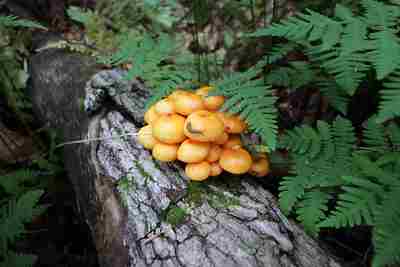
3. Consumption of Biogenic Wastes, Organic Remains and Detritus
Decomposers play a crucial role in the food chain through the consumption of biogenic wastes, organic remains, and detritus.
*Biogenic wastes refer to the waste materials produced by living organisms, such as feces, urine, and dead cells. Organic remains include dead plants, animals, and their parts. Detritus consists of small organic particles, such as fallen leaves, twigs, and dead insects.
*Decomposers, including bacteria, fungi, and certain invertebrates, break down these organic materials into simpler compounds. They secrete enzymes that break down complex organic molecules into smaller molecules that can be absorbed and utilized by decomposers themselves or other organisms in the food chain.
*By consuming biogenic wastes, organic remains, and detritus, decomposers recycle nutrients back into the ecosystem. This process is known as nutrient cycling or biogeochemical cycling.
*The nutrients released by decomposers are essential for the growth and development of autotrophs, heterotrophs, and other organisms in the food chain. They provide the necessary elements, such as nitrogen, phosphorus, and carbon, for the synthesis of proteins, nucleic acids, and other vital molecules.
*Without decomposers, the accumulation of biogenic wastes and organic remains would lead to the depletion of nutrients and the stagnation of the food chain.
4. Creation of Room for Continuous Biological Activity and Growth
Decomposers play a crucial role in the food chain by creating room for continuous biological activity and growth.
*As decomposers break down biogenic wastes, organic remains, and detritus, they create space for new organisms to thrive. By consuming and decomposing dead plants, animals, and their parts, decomposers prevent the accumulation of organic matter that could hinder the growth and development of other organisms in the food chain.
*The decomposition process releases nutrients that are essential for the growth and survival of autotrophs, heterotrophs, and other organisms in the ecosystem. These nutrients include nitrogen, phosphorus, carbon, and other elements necessary for the synthesis of proteins, nucleic acids, and other vital molecules.
*By recycling these nutrients, decomposers ensure a continuous supply of resources for the entire food chain. This allows for the sustained growth and reproduction of organisms at different trophic levels.
*Furthermore, the activities of decomposers contribute to the overall stability and balance of the food chain. By breaking down organic matter, decomposers prevent the accumulation of waste materials that could lead to the depletion of nutrients and the stagnation of the ecosystem.
*In addition, decomposers play a crucial role in maintaining the health of the soil. By decomposing organic matter, they improve soil structure, increase nutrient availability, and enhance water retention capacity. This creates a favorable environment for plant growth and supports the overall productivity of the ecosystem.
What is the Role of Decomposers in a Food Web?
Decomposers play a vital role in the food web, similar to their role in the food chain. Their presence supports the interconnectivity and stability of the entire ecosystem through their activities.
* Decomposers are responsible for breaking down biogenic wastes, organic remains, and detritus. By consuming and decomposing dead plants, animals, and their parts, they prevent the accumulation of organic matter that could hinder the growth and development of other organisms in the food web. This process creates space for new organisms to thrive and ensures a continuous flow of energy resources throughout the ecosystem.
* Additionally, decomposers contribute to the recycling of nutrients in the food web. As they break down organic matter, they release essential nutrients such as nitrogen, phosphorus, carbon, and other elements. These nutrients are then made available to autotrophs, heterotrophs, and other organisms in the ecosystem. By recycling these nutrients, decomposers support the growth and reproduction of organisms at different trophic levels, maintaining the overall balance and productivity of the food web.
* Moreover, decomposers play a crucial role in maintaining the health of the environment. Through their decomposition activities, they improve soil structure, increase nutrient availability, and enhance water retention capacity. This creates a favorable environment for plant growth and supports the overall productivity of the ecosystem.
FAQs
1. How Do Plants Obtain the Nitrogen They Need?
Plants obtain the nitrogen they need through a process called nitrogen fixation. Nitrogen fixation is the conversion of atmospheric nitrogen gas (N2) into a form that plants can use, such as ammonium (NH4+) or nitrate (NO3-).
This process is carried out by nitrogen-fixing bacteria, which live in the soil or form symbiotic relationships with certain plants, such as legumes. These bacteria have the ability to convert atmospheric nitrogen into a usable form through biological processes. Once the nitrogen is fixed, plants can absorb it through their roots and incorporate it into their tissues for growth and development.
2. What Role Do Decomposers Play in the Phosphorus Cycle?
Decomposers play a crucial role in the phosphorus cycle by breaking down organic matter and releasing phosphorus back into the environment. When plants and animals die, their organic remains contain phosphorus in the form of organic compounds. Decomposers, such as bacteria and fungi, break down these organic compounds and release phosphorus as inorganic phosphate (PO4^3-) into the soil or water.
This inorganic phosphate can then be taken up by plants and used for various biological processes, such as DNA synthesis, energy transfer, and cell division. Without decomposers, phosphorus would remain locked in organic matter and unavailable for use by other organisms in the ecosystem.
3. Where Does the Free Nitrogen Produced by Bacteria Eventually Go?
The free nitrogen produced by bacteria eventually goes back into the atmosphere. After nitrogen fixation, some of the fixed nitrogen is converted into ammonia (NH3) or nitrate (NO3-) by nitrifying bacteria.
These forms of nitrogen can be taken up by plants and used for growth. However, when plants and animals die or excrete waste, the nitrogen compounds are broken down by decomposers, releasing nitrogen gas (N2) back into the atmosphere through a process called denitrification. Denitrifying bacteria convert nitrate back into nitrogen gas, completing the nitrogen cycle and returning nitrogen to the atmosphere.
4. What Role Do Decomposers Play in the Carbon Cycle?
Decomposers play a vital role in the carbon cycle by breaking down organic matter and releasing carbon dioxide (CO2) back into the atmosphere. When plants and animals die, their organic remains contain carbon in the form of complex organic compounds. Decomposers, such as bacteria and fungi, break down these organic compounds through the process of decomposition, releasing carbon dioxide as a byproduct.
This carbon dioxide can then be taken up by plants during photosynthesis to produce carbohydrates and other organic compounds. Without decomposers, carbon would remain locked in organic matter, disrupting the carbon cycle and affecting the balance of carbon dioxide in the atmosphere.
5. How Is Energy Involved in the Nitrogen Cycle?
Energy is involved in the nitrogen cycle through various biological processes. Nitrogen fixation, the conversion of atmospheric nitrogen into a usable form, requires energy. Nitrogen-fixing bacteria use energy from various sources, such as sunlight or organic compounds, to carry out the process of nitrogen fixation.
Additionally, nitrification, the conversion of ammonia into nitrate, also requires energy and is carried out by nitrifying bacteria. Energy is needed to power the enzymatic reactions involved in these processes. Overall, energy is essential for the different steps of the nitrogen cycle, from nitrogen fixation to denitrification, ensuring the continuous cycling of nitrogen in the ecosystem.
6. Describe What Happens During Nitrification.
Nitrification is a two-step process that converts ammonia (NH3) into nitrate (NO3-). The first step of nitrification is carried out by ammonia-oxidizing bacteria, which convert ammonia into nitrite (NO2-). This process releases energy and is an aerobic process, meaning it requires oxygen.
The second step of nitrification is carried out by nitrite-oxidizing bacteria, which convert nitrite into nitrate. This step also releases energy and requires oxygen.
Nitrification is an important process in the nitrogen cycle as it converts ammonia, which is toxic to many organisms, into a less toxic form (nitrate) that can be used by plants for growth. It also plays a role in the removal of excess nitrogen from ecosystems, preventing nutrient imbalances and pollution.
7. How Do Humans Affect the Nitrogen Cycle?
Humans have a significant impact on the nitrogen cycle through various activities. One major way is through the excessive use of synthetic fertilizers in agriculture. Synthetic fertilizers contain high levels of nitrogen compounds, such as ammonium nitrate or urea, which are easily taken up by plants. However, when these fertilizers are applied in excess, the unused nitrogen can leach into water bodies, leading to eutrophication and harmful algal blooms.
Additionally, the burning of fossil fuels and industrial processes release nitrogen oxides into the atmosphere, contributing to air pollution and the formation of smog. These human activities have disrupted the natural balance of the nitrogen cycle, leading to environmental issues and impacting ecosystems.
8. Name 2 Processes That Remove Nitrogen from the Atmosphere.
Two processes that remove nitrogen from the atmosphere are nitrogen fixation and lightning. Nitrogen fixation is the process by which certain bacteria convert atmospheric nitrogen gas (N2) into a usable form, such as ammonia or nitrate, that can be taken up by plants.
This process is essential for introducing nitrogen into the ecosystem. Lightning also plays a role in nitrogen fixation. During a lightning strike, the high temperatures and energy can cause nitrogen gas in the atmosphere to react with oxygen, forming nitrogen oxides.
These nitrogen oxides can then dissolve in rainwater and fall to the ground, providing a source of fixed nitrogen for plants and other organisms.
9. What Is the Role of Denitrifying Bacteria in the Nitrogen Cycle?
The role of denitrifying bacteria in the nitrogen cycle is to convert nitrate (NO3-) back into nitrogen gas (N2), completing the cycle and returning nitrogen to the atmosphere.
Denitrifying bacteria are anaerobic bacteria that thrive in oxygen-depleted environments, such as waterlogged soils or sediments. In the absence of oxygen, these bacteria use nitrate as an alternative electron acceptor during respiration.
They break down nitrate and release nitrogen gas, which is then released into the atmosphere. This process, known as denitrification, helps regulate the levels of nitrogen in ecosystems and prevents the accumulation of excess nitrate, which can be detrimental to aquatic ecosystems.
10. How Does the Nitrogen Cycle Work?
The nitrogen cycle is a complex biogeochemical cycle that involves the cycling of nitrogen through various forms and processes in the environment. It begins with nitrogen fixation, where certain bacteria convert atmospheric nitrogen gas (N2) into a usable form, such as ammonia or nitrate, that can be taken up by plants.
Plants then incorporate this fixed nitrogen into their tissues through assimilation. Animals obtain nitrogen by consuming plants or other animals. When plants and animals die or excrete waste, decomposers break down the organic matter and release nitrogen back into the environment as ammonia.
This ammonia is then converted into nitrite and nitrate through nitrification. Finally, denitrifying bacteria convert nitrate back into nitrogen gas, completing the cycle and returning nitrogen to the atmosphere.
11. What Is the Role of Bacteria in the Nitrogen Cycle?
Bacteria play a crucial role in the nitrogen cycle by carrying out key processes such as nitrogen fixation, nitrification, and denitrification. Nitrogen-fixing bacteria convert atmospheric nitrogen gas (N2) into a usable form, such as ammonia or nitrate, that can be taken up by plants.
These bacteria form symbiotic relationships with certain plants, such as legumes, or live freely in the soil. Nitrifying bacteria convert ammonia into nitrite and then into nitrate, making nitrogen available for plant uptake.
Denitrifying bacteria, on the other hand, convert nitrate back into nitrogen gas, completing the cycle and returning nitrogen to the atmosphere. Without these bacteria, the nitrogen cycle would not be possible, and the availability of nitrogen for living organisms would be limited.
12. What Is Nitrogen Fixation?
Nitrogen fixation is the process by which certain bacteria convert atmospheric nitrogen gas (N2) into a usable form, such as ammonia or nitrate, that can be taken up by plants.
Nitrogen gas is abundant in the atmosphere, but most organisms cannot use it directly. Nitrogen-fixing bacteria have the ability to break the strong triple bond between nitrogen atoms and convert nitrogen gas into a more reactive form. These bacteria live in the soil or form symbiotic relationships with certain plants, such as legumes.
They have specialized enzymes called nitrogenase that catalyze the conversion of nitrogen gas into ammonia. This ammonia can then be used by plants to synthesize proteins, nucleic acids, and other nitrogen-containing compounds essential for growth and development. Nitrogen fixation is a vital process in the nitrogen cycle as it introduces new nitrogen into the ecosystem and supports the growth of plants and other organisms.


